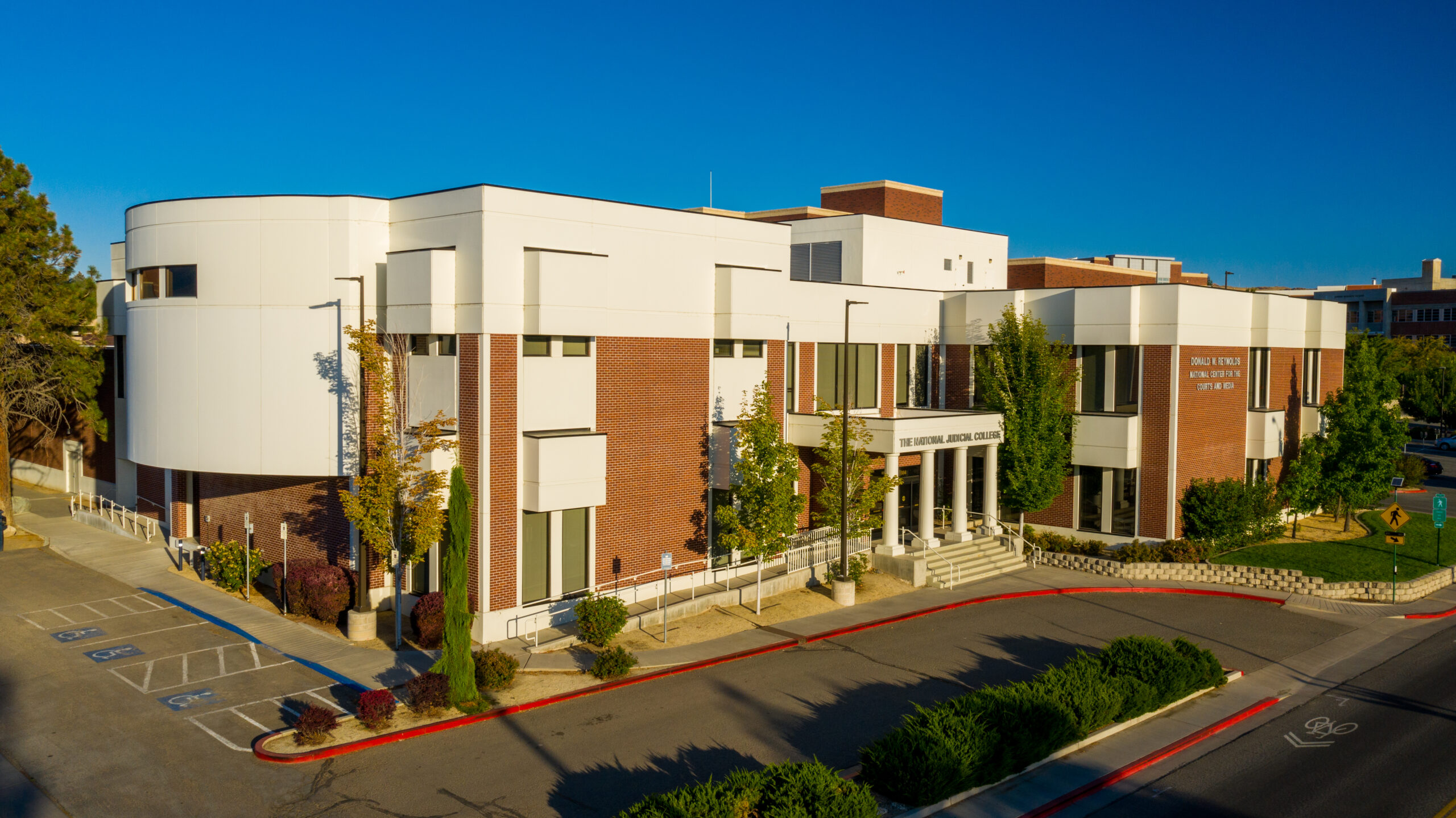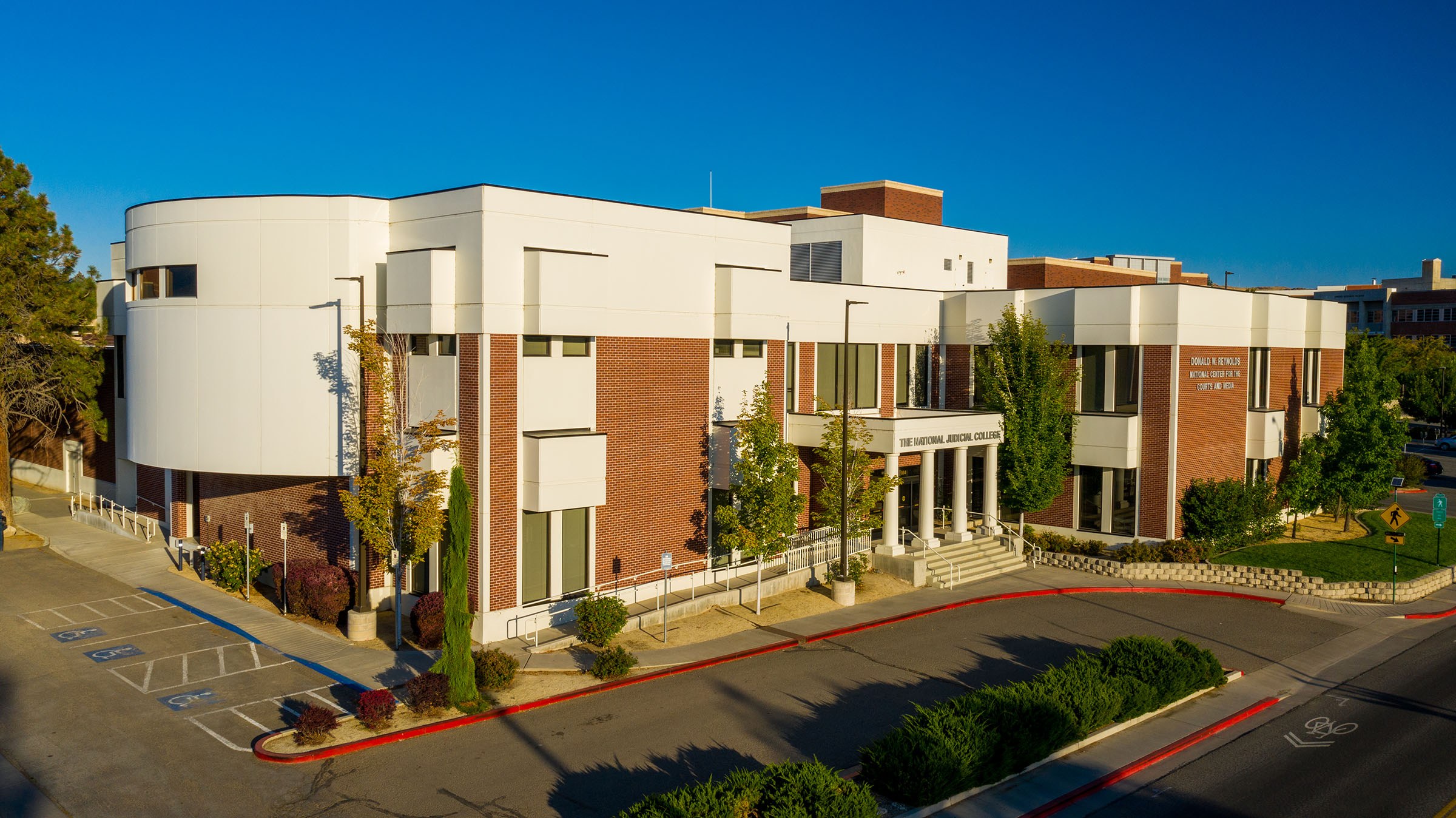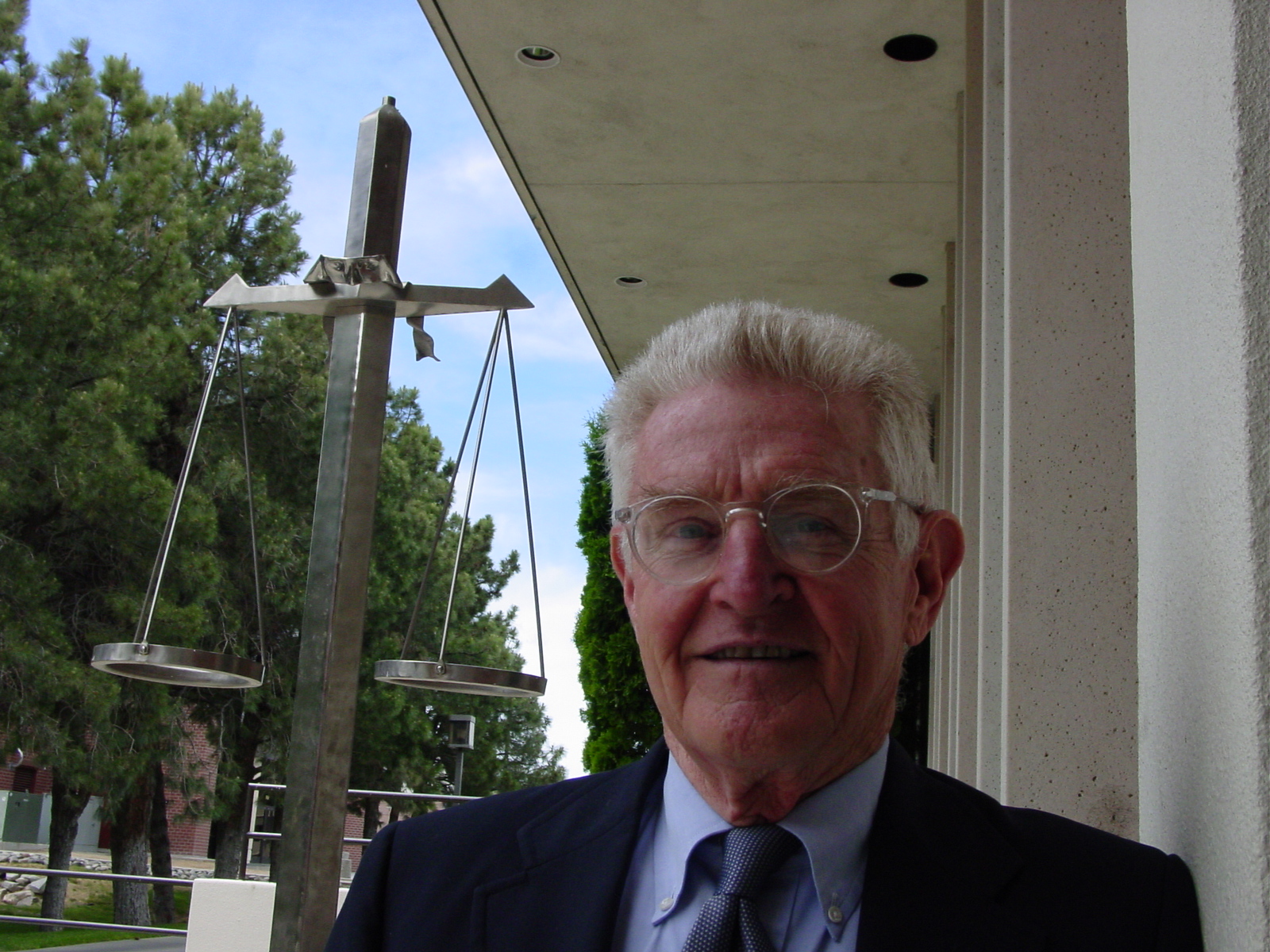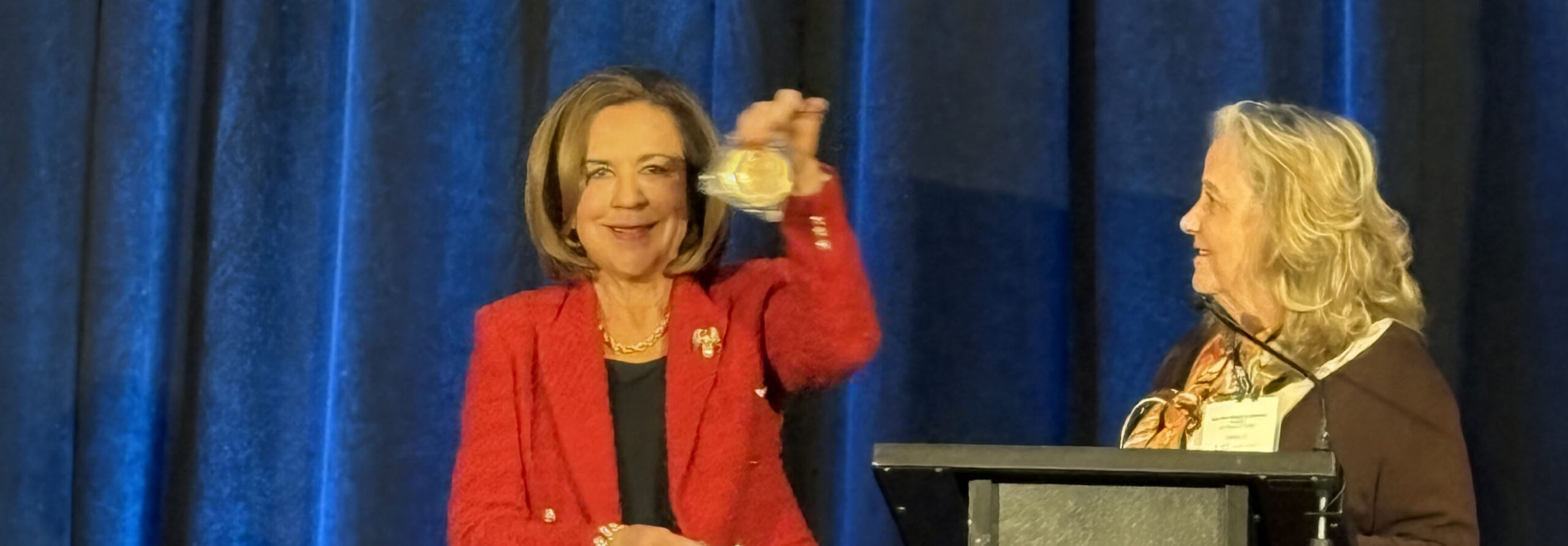This fall the country’s oldest, largest and most widely attended school for judges will again offer the country’s only college course for lawyers who aspire to become judges.
The National Judicial College’s Judicial Academy will be held Oct. 25-29 at the college’s headquarters on the campus of the University of Nevada, Reno.
Attorneys with significant experience and demonstrated high ethical standards are encouraged to apply through the college’s website, Judges.org. Rolling admissions are in effect, and the deadline to apply is June 1. Enrollment is expected to be capped at 40. The program also aims to increase diversity on the bench, so applicants from diverse backgrounds are encouraged to apply.
The opportunity exists for a limited number of media to embed.
Making it to the bench
So far five members of the program’s inaugural class in 2019 have made it to the bench (the 2020 course was canceled by Covid) in California, Colorado, Louisiana and Virginia. The most recent, Marie A. Moses, is scheduled to begin her appointment on Colorado’s 2nd Judicial District Court in Denver on May 1.
“My participation in the Judicial Academy strengthened my judicial application,” she said. “The nominating commission was clearly impressed that I had gone above and beyond the normal judicial applicant by educating myself on the skills I would need to employ as a judge.”
(See below for Judge Moses’s full remarks about the program.)
Participants in the program learn about a judge’s many responsibilities as well as strategies for attaining a judgeship, be it through appointment or election. Instructors include veteran judges, professionals in charge of judicial selection, and experts on judicial election campaigns.
In anonymous evaluations by participants, the course earned an average score of 6.9 out of 7. Wrote one participant: “Nothing was sugar-coated. We heard straight talk about the joys and rewards of being a judge but also received sober assessments of the challenges of serving as a judge. I only wish that the course had been available earlier in my judicial journey.”
Why such a course is unheard of
The idea of teaching people how to become a judge is literally foreign to the United States.
Some states organize events akin to career days to encourage people (especially underrepresented minorities) to consider judicial careers. But unlike many other countries, the United States has no formal system of preparing candidates for the bench. No U.S. law school offers a degree, a major or even a course in how to conduct a trial or hearing or handle the other responsibilities of a judge.
In the United States, the overwhelming majority of judges are attorneys who are elected or appointed to their posts without any prior judicial education. For many, their only preparation before putting on a robe is an orientation lasting less than a day.
Scores of people come to The National Judicial College each year after their appointment or election to the bench for the NJC’s two-week General Jurisdiction introductory course for new trial judges or corresponding courses for administrative law judges and limited jurisdiction judges. The College offers dozens of courses for experienced judges throughout their careers on subjects such as decision making, judicial writing, handling capital cases and avoiding bias.
In a 2018 poll of National Judicial College alumni, 68 percent said they began their careers with no formal judicial education. One judge recalled, “I didn’t [have any preparation] other than, ‘Here’s your robe, here’s your courtroom, now go preside over your first felony jury trial on your second day.’”
In his 2018 book You Are Not a Lawyer Anymore: A Primer for Those Who Want to Be a Good Judge, retired judge T. W. “Chip” Small writes, “Doctors go to medical school, lawyers go to law school, law enforcement officers go to the police academy. Judges … nothing.”
NJC President Benes Z. Aldana said, “One of our objectives in creating this program is to spark a national conversation on how we prepare people – or rather how we don’t prepare them – to take on the difficult and extremely important role of judge.”
The College’s aim in launching the Judicial Academy is to identify a diverse group of experienced attorneys, teach them, and pair them with mentor judges so they can hit the ground running and administer justice fairly and expertly.
One graduate’s journey to the bench
Marie Moses, 2019 alumna and new district court judge in Denver, talks about the Judicial Academy:
“The program did an outstanding job of providing me with real insight into what a life as a judge might be like. For many in our class, the program helped us crystalize our thinking about why we wanted to pursue a career in the judiciary. For others, the program was an opportunity to think long and hard about whether seeking a judicial position was the right career path. We were provided with sobering information about social isolation, safety concerns, public pressures and managing combative litigants. The quest to be a judge is long and hard, so it is incredibly important to be clear-eyed about whether it is the right path.
“The benefits of attending the program have extended far beyond the substantive knowledge we learned in the classroom. Our class was able to create a community of individuals who were going through similar experiences as we sought to be elected or appointed to the bench. For me, knowing that I was not going through the process alone helped me overcome many of the disappointments that I encountered on my judicial quest. We were often told that persistence would pay off, and those words help inspire me to keep applying for judicial vacancies—until my determination was ultimately rewarded with a judicial appointment.
“My participation in the Judicial Academy strengthened my judicial application. The nominating commission was clearly impressed that I had gone “above and beyond” the normal judicial applicant by educating myself on the skills I would need to employ as a judge. Additionally, the things I learned in the classroom enabled me to speak in a more informed manner during my judicial interviews. As an unexpected bonus, participating in the Judicial Academy opened the door for me to attend other NJC programs on topics such as combating bias in juries and ways for judges to check themselves for implicit bias. My decision to seek out these extra training programs was appreciated by the nominating commission and allowed me to demonstrate my commitment to addressing systemic bias in the judicial system.”
Program details
When: October 25-29, 2021
Where: The National Judicial College on the campus of the University of Nevada, Reno
Tuition: $1,239, which includes all materials, plus a $299 conference fee that covers breakfast and lunch every day and an evening banquet. Scholarships may be available.
Prerequisites: Enrollment is limited to attorneys with prior significant experience who have not been disciplined for their conduct as an attorney.
Apply by June 1 at www.judges.org/judicialacademy/

The Hon. Leslie A. Hayashi (Ret.), a retired district court judge from the First Circuit in Honolulu, Hawai...

The National Judicial College has named Dean Aviva Abramovsky as its next president and chief executive off...

Ernest C. Friesen, Jr., the first dean of The National Judicial College, passed away on December 11, 2025, ...

The National Judicial College has awarded Missouri Supreme Court Judge Mary Russell with the Sandra Day O�...

Emeritus Trustee Bill Neukom (left) with former Board of Trustee Chair Edward Blumberg (right) at the NJC 60...